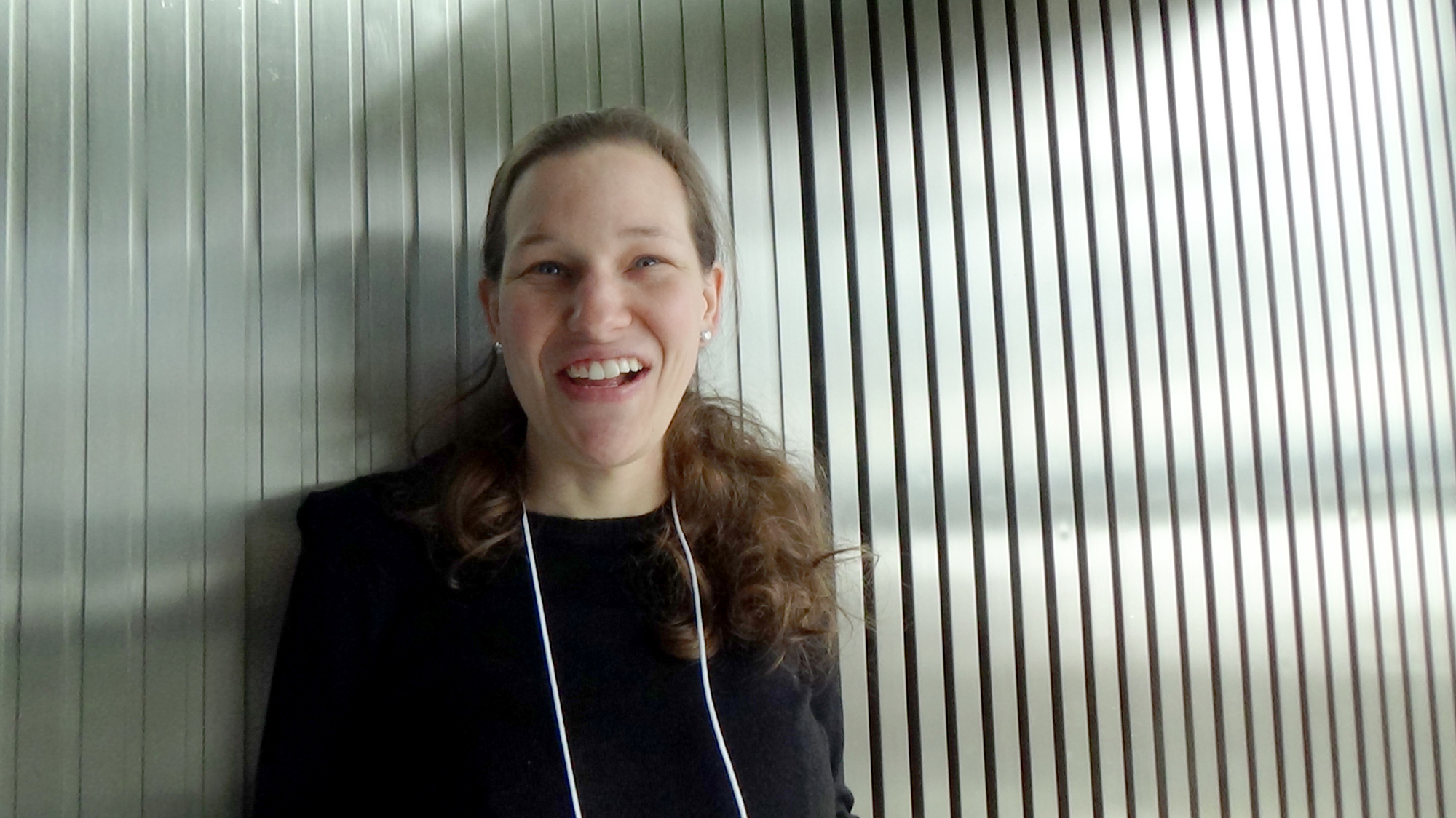Kristin Thatcher has always had a calling to educate those around her.
“When I was in PS 60, a public school in Staten Island, I had teachers that loved me and cared about me and pushed me to do things that I was uncomfortable doing,” she says. “I wanted to be like them. I wanted to make a difference.”
Since then, Kristin has become one of AHRC New York City’s most visible self-advocates. She has attended numerous rallies around the state to advocate for higher wages for direct care workers; she has informed legislators in New York City and Albany about issues important to people with disabilities; and, perhaps, most important to her, she has served as a mentor for numerous budding proponents of disability rights, especially young women.
“I think more girls are worried about speaking out, but if they see me do it that might change,” Kristin says. “Don’t be afraid. Just know what you’re talking about.”
Finding Her Voice
Kristin believes that women are often overlooked in the conversation about autism. “Young men do get autism more than women, according to the numbers, but there are women with autism too, and our awareness needs to be worked on,” she explains.
Kristin’s mom, Lynn, has always been open with her daughter when discussing I/DD. Her path to self-advocacy took shape when a fifth-grade teacher told Lynn that Kristin would never get any smarter than the elementary school level.
“If you know my mom, then you know you could never tell her something like that. She never hid my disability from me, so I was able to know that I was different,” Kristin says. “Mom had a lot of ways of socializing me with our neighbors and playing sports like soccer and basketball. In high school I did drama.”
In 2009, Kristin applied for the Melissa Riggio Higher Education Program at the College of Staten Island. “I was uncomfortable about potentially going to college,” she now admits. “It was fear of the unknown, I think. But it was the greatest experience I could have had.”
Kristin became a mentor to younger students in the program, helping to guide them through the uncertainty she once faced. She also began to attend her first advocacy events, such as the annual Staten Island Developmental Disabilities’ Council Legislative Breakfast. She took self-advocacy training courses at a Day Services program in Manhattan, all to further her goal of connecting with and informing the masses.
“Self-advocacy allows me to be a teacher not just to people like me—I can be a teacher for the regular public. They can see a face. Not all people with disabilities look the same. I can teach and I feel so powerful.”
A New Place and A Renewed Purpose
Kristin continues to advocate for her issues whenever possible, though the pandemic has made that more difficult. Last summer, she was able to participate in a drive-by rally calling on Governor Cuomo to #SaveOurServices and protect funding for I/DD programs.
“I’ve had to learn different ways to survive [during the pandemic],” Kristin says. “I’ve done art projects; I’ve hung out with my family more. I miss lobbying, I miss working with AHRC, I miss going up to Albany. I used to be so busy, and now it’s ‘what am I going to do today?’”
Recently, Kristin was able to take a big step in her life as she moved out of her parent’s home and into a house she shares with some of her peers. She is looking ahead with a message for people who may underestimate her ability.
“The worst thing people can think about us is that we aren’t smart,” she said. “I’ve worked with all types of people with disabilities. I worked with people with limited communication and I can communicate with them. They tell me what they want if even they don’t verbalize it. We learn their body language. ‘Normal’ people think we’re stupid. We’re really not–we just learn a little differently.”
